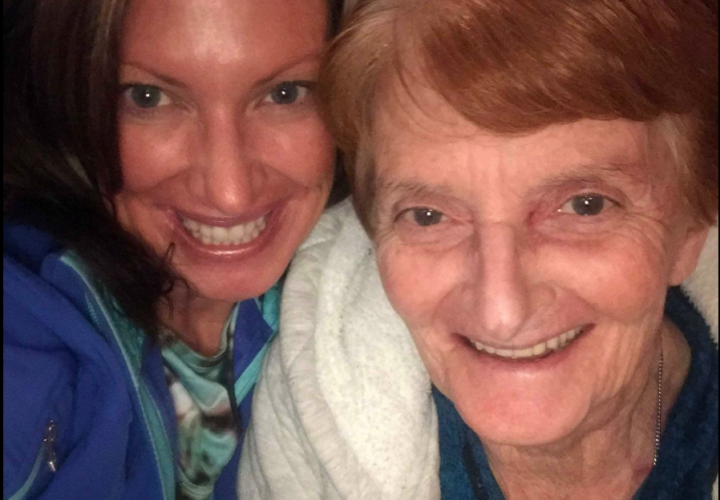Families share stories of their loved ones’ experiences with homelessness and dementia.
When Heather Oglesby pulled up to a homeless shelter in Gettysburg, Pennsylvania, she found her mother, Patricia, standing on the back steps.
“She weighed 101 pounds. She was 64, but looked like she was 94. She smelled. Her clothes were 10 times too big for her and filthy,” Oglesby said.
One year earlier, Oglesby had moved from Pennsylvania, where her mother lived, to Georgia for a new job. She said she became increasingly concerned about her mother’s mental health, especially since they were now hundreds of miles away from each other. At the time, Oglesby was unaware that her mother was suffering from Alzheimer’s.
Because her mother was only 58 when she first started acting out of the ordinary, Oglesby thought Patricia might have depression. Many caregivers report that their loved ones with Alzheimer’s were initially misdiagnosed. Since symptoms of Alzheimer’s and depression sometimes overlap, doctors may have difficulty distinguishing between the two.
“Mom would call me crying 11 times in a row,” said Oglesby. “When she was 63, one of the clients whose house she cleaned messaged me and said, ‘Your mom’s been acting strange. She’s putting Lysol in the refrigerator.’”
Locating Affordable Health Care
Worried about her mother’s behavior, Oglesby tried to find inexpensive treatment. Although her mother had worked her entire life, including an 11-year position as a high school custodian, she was never offered health benefits and always paid for her doctor’s visits out-of-pocket. Oglesby said a costly payment made her mother reluctant to go to the doctor, which she attributes to the delay in diagnosis.
“We paid for her glasses, inhaler for asthma and things like that,” said Oglesby. “Because she had no health care, she didn’t get flu shots or go to gynecological visits. She only went to these walk-in clinics when she got sick with the flu or pneumonia,” she said. “When older patients go to these walk-in clinics, there should be memory screenings and preventative care, but that was not happening.”
After the Affordable Care Act passed, Oglesby said she applied for her mother, but Patricia was turned down because she made too little money: Applicants could not make under $9,700 per year. Patricia made $7,800.
“They offered her health care for $900 per month, and I said, ‘Are you kidding me? She makes $7,800 per year,’” Oglesby said. “I called the Office of Aging and I called around for services, but there were no services available. I paid hundreds and hundreds of dollars out-of-pocket. I’d be like, ‘I wonder how much blood work or a screening would be?’ Because she lived so far away, I also had to get her to the appointments.”
While Oglesby also wanted to apply for Medicare or Medicaid, she said her 63-year-old mother was too young to qualify. The federal government and the state of Georgia, where her mother eventually relocated, require applicants to be 65 years old to qualify. Her mother fell into what’s known as a coverage gap—she was too young for Medicaid in Georgia, a state that did not expand coverage like many other states that cover poor people, no matter their age.
According to the National Coalition for the Homeless, this gap may explain why fewer homeless people are elderly: In many cases, government resources are not available until people reach a certain age, including subsidized housing at 62 and Medicare and Social Security benefits at 65.
While recent reports by the U.S. Department of Housing and Urban Development only track homelessness among those who are under 18, between 18 and 24 and over 24, their 2012 report showed that 51 percent of homeless people in a shelter were between 31 and 61 years old, though only 3 percent were over age 62.
Why Elderly People Become Homeless
Dr. Margot Kushel, a UCSF researcher and School of Medicine professor who focuses on homelessness among older adults, said that although she wishes the smaller number of homeless individuals who are over age 62 could be attributed to better resources for the aging population, the reality is that the life expectancy is much shorter for those who live in deep poverty.
“Our research and others have shown that people who are older and homeless die of the same things that people in the general population die from—meaning cancer and cardiovascular diseases—but they just die 20 to 30 years earlier, so the primary reason that there are fewer homeless people who are this age is that people just don’t live as long,” Kushel said.
She adds that another reason this age group is at a higher risk of homelessness is because incomes have not been keeping up with housing costs.
“People have a vision of homelessness as people who have lifelong substance abuse problems or mental health problems, but the group that is having the most trouble with housing costs in this country is adults who are 50 and older,” Kushel said. “Their incomes tend to be fixed, they tend not to compete well in the job market—younger people get the job—and there is a housing crisis.”
In her study of homeless individuals who were 60 and older in Oakland, California, 44 percent reported that they had not been homeless before age 50. Kushel said the results suggest that they may have lost their job or developed conditions, including cognitive impairment, that hindered their ability to find helpful resources.
Navigating Homelessness While Living With Dementia
In addition to the lack of affordable housing in the U.S., Kushel said that cognitive impairment may increase an individual’s risk of homelessness because it interferes with someone’s ability to fill out important housing forms.
“The world doesn’t recognize them as having cognitive impairment. People will say, ‘Well, I told them if they just bring this form in, they could be on a housing list,’” Kushel said. “They don’t recognize that their lack of doing that is not because they’re not interested in housing, but their cognitive impairment is getting in the way of their ability to follow instructions.”
In addition, Kushel said that if families are unable to take their loved one to a physician because of health care costs, they may not recognize that their loved one has dementia and mistake their behavior for stubbornness or poor decision-making. Even health care providers miss symptoms of dementia, Kushel said.
Before she learned that her mother had Alzheimer’s, Oglesby was baffled when she received a call from her mother’s friend, who said that Patricia had been evicted from the apartment she lived in for 20 years. When Oglesby called her mother, Patricia told her that her stuff was on the front porch and she had gotten evicted.
Oglesby soon learned what actually happened: Her mother left her apartment to stay with a friend and turned her heat down. The water pipes burst and the apartment flooded, so the landlords helped move her stuff out. They told her she could stay with them until they fixed her apartment.
“She couldn’t even communicate properly what was happening,” Oglesby said. “Then, the friend she was staying with told me she wasn’t coming home. She said my mom had lost about 25 pounds and her behavior was strange. They wanted to take her to a doctor, but she refused to go, became angry and stopped coming home at night.”
Concerned, Oglesby called her mother to see where she was. “She had been sleeping in her car with all of her things in parking lots like Walmart and Target,” Oglesby said. Oglesby called the Marriott right away and booked a room her mother could stay in for several weeks until she could help her.
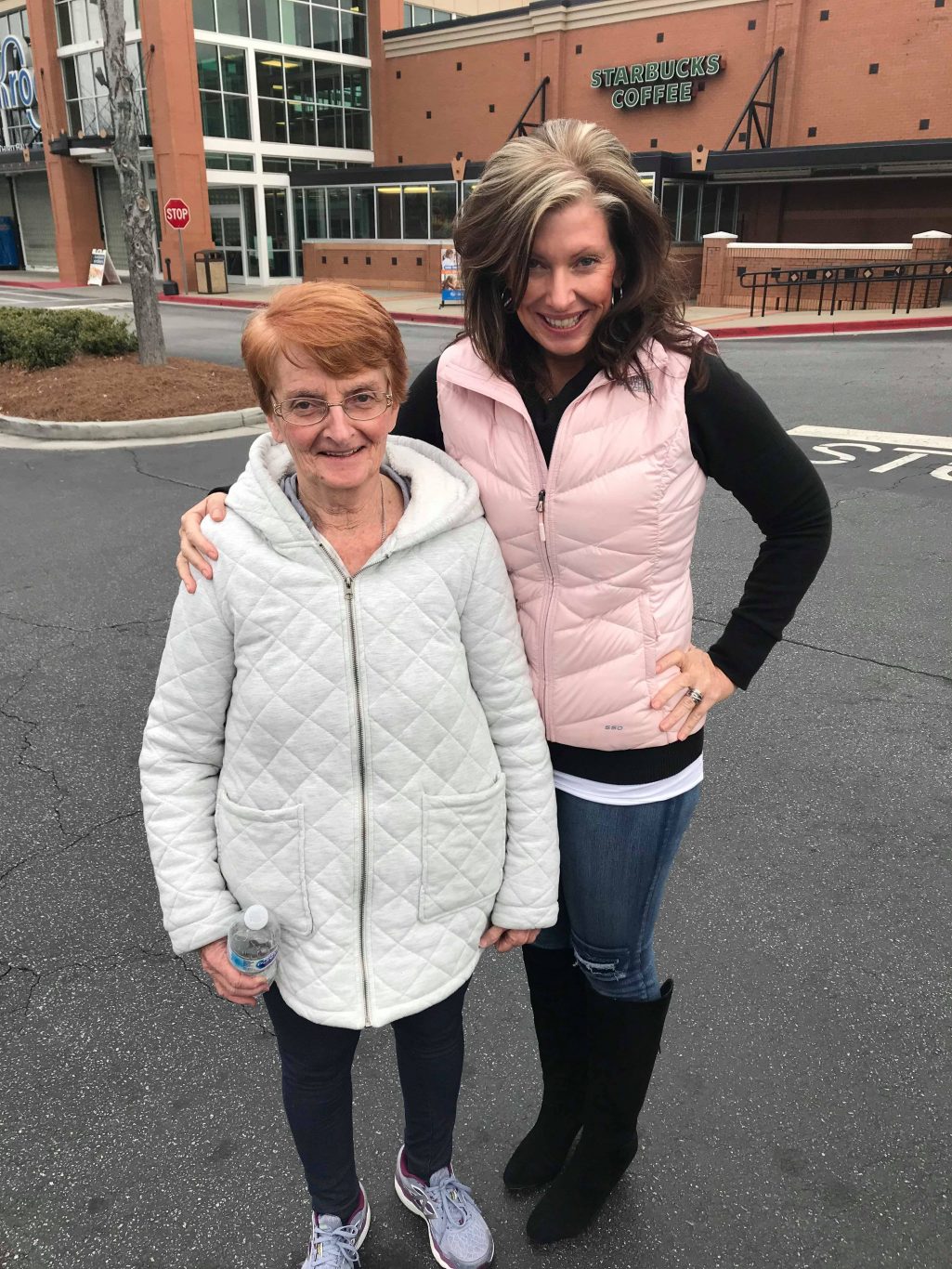
“I said, ‘Mom, please go, you can get a fresh shower,’” Oglesby said. However, Patricia refused to go and started crying. Oglesby canceled the reservation and made her mother promise that she would stay with friends.
Shortly after, Oglesby got a call from her mother from a women’s shelter. Patricia’s friend had taken her there after finding her sleeping in her car again.
“I had to talk to my supervisor, where I just started a new job, and said, ‘I need to take two days off from work. I have a family crisis and I’ve got to go pick up my mother,’” Oglesby said.
After picking her mother up from the shelter and taking her to Georgia, Oglesby spent several months trying to locate a doctor who could diagnosis her mother. While Patricia was eventually diagnosed with Alzheimer’s, a doctor at Emory University’s Alzheimer’s Disease Research Center initially misdiagnosed her with pseudodementia, or cognitive impairment that is linked to depression.
Kushel believes we need to train our workforce to better recognize problems that are related to cognitive impairment. This way, they can have effective responses that prevent people from becoming homeless in the first place.
Oglesby agrees. She said a mental health first aid kit, which teaches people to pick up on the symptoms of mental health issues, could help detect dementia symptoms.
“I think about all of the people she came in contact with, like her friends, the shelter, these walk-in clinics, and nobody could assess her properly or had a clue that she had Alzheimer’s,” Oglesby said. “We can build on this model for dementia before someone gets into a crisis,” Oglesby said.
The elderly homeless population in the U.S., or those who are between 50 and 64 years old and will not have stable housing, is predicted to double by about 59,000 in 2020 to 95,000 in 2050, according to the Homeless Research Institute’s 2009 estimate.
Oglesby said her mother was homeless for about two weeks: She slept in her car for one week and was in the shelter for an additional week.
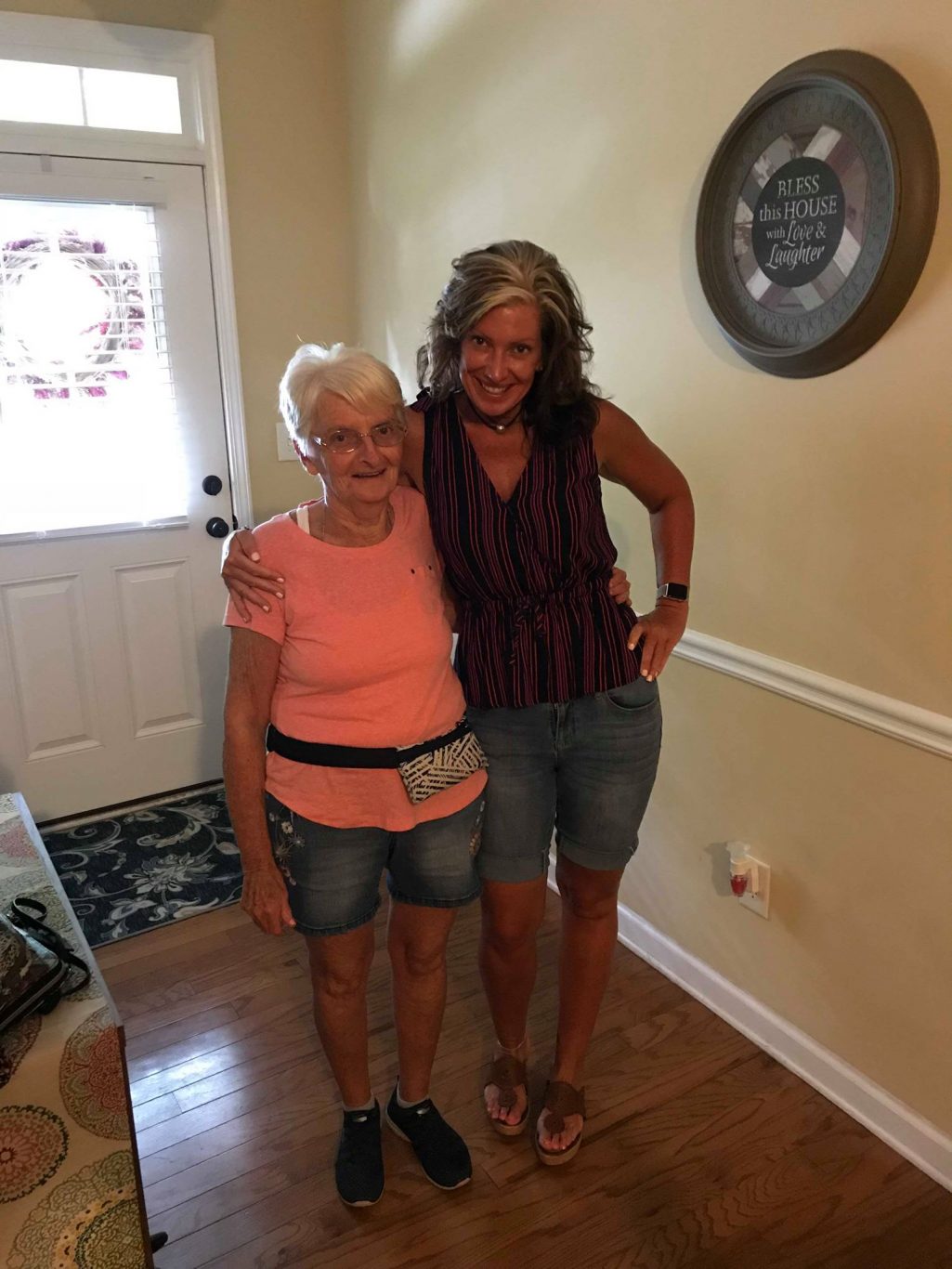
Navigating Homelessness Without a Support System
Dawn Puckett Pitts also believes that if her family had not found her father, Kyle, he would likely be dead.
Puckett Pitts was 12 years old the last time she saw her father. Her grandmother told her that he was just stepping out for cigarettes, but he never returned.
She began researching where her dad could be when she turned 18, but it wasn’t until 2015, when she was 46 years old, that her aunt received a call about her father.
The family learned that her father was in a homeless shelter in Santa Monica, California with a broken leg. Puckett Pitts, who lives in Iowa, spoke to him on the phone at the shelter. “I was bawling the whole time because I hadn’t even heard his voice,” she said.
Although the shelter discussed putting her father on a bus ride home, she did not hear from him after that call, and the shelter told her he had not returned.
This May, Puckett Pitts’ aunt received another call from UCLA Hospital in Santa Monica. They learned that her father was brought there in March with a fever, severe infection, kidney stone and UTI. They also learned that he had dementia and suffered a frontal lobe brain injury.
The hospital tried to locate his family, but because he changed his last name to his mother’s maiden name, the hospital had difficulty locating his relatives until he mentioned the last name on his birth certificate.

The hospital bought Puckett Pitts a roundtrip ticket to get her father.
“In his mind, I’m a 10-year-old little girl, so when he saw me, I think he thought I was my mom,” Puckett Pitts said. “I started crying and he was just smiling and hugging me so tight.”
Now, her father is in a nursing home, but Puckett Pitts said he still thinks he is homeless.
“When my mother and I went to visit him, he said, ‘If you go down there, they give you food for free,” Puckett Pitts said. “Yesterday, I gave him a banana and he said, ‘Do you want a bite?’ He always wants to share food because he knows what it’s like to be homeless. I learned he was handing out his clothes at the nursing home.”
Puckett Pitts said he had been gone for 38 years before they were reunited, and had likely been homeless since 1981 when he left. He has no work record since he lived in Illinois and Iowa when she was a baby.
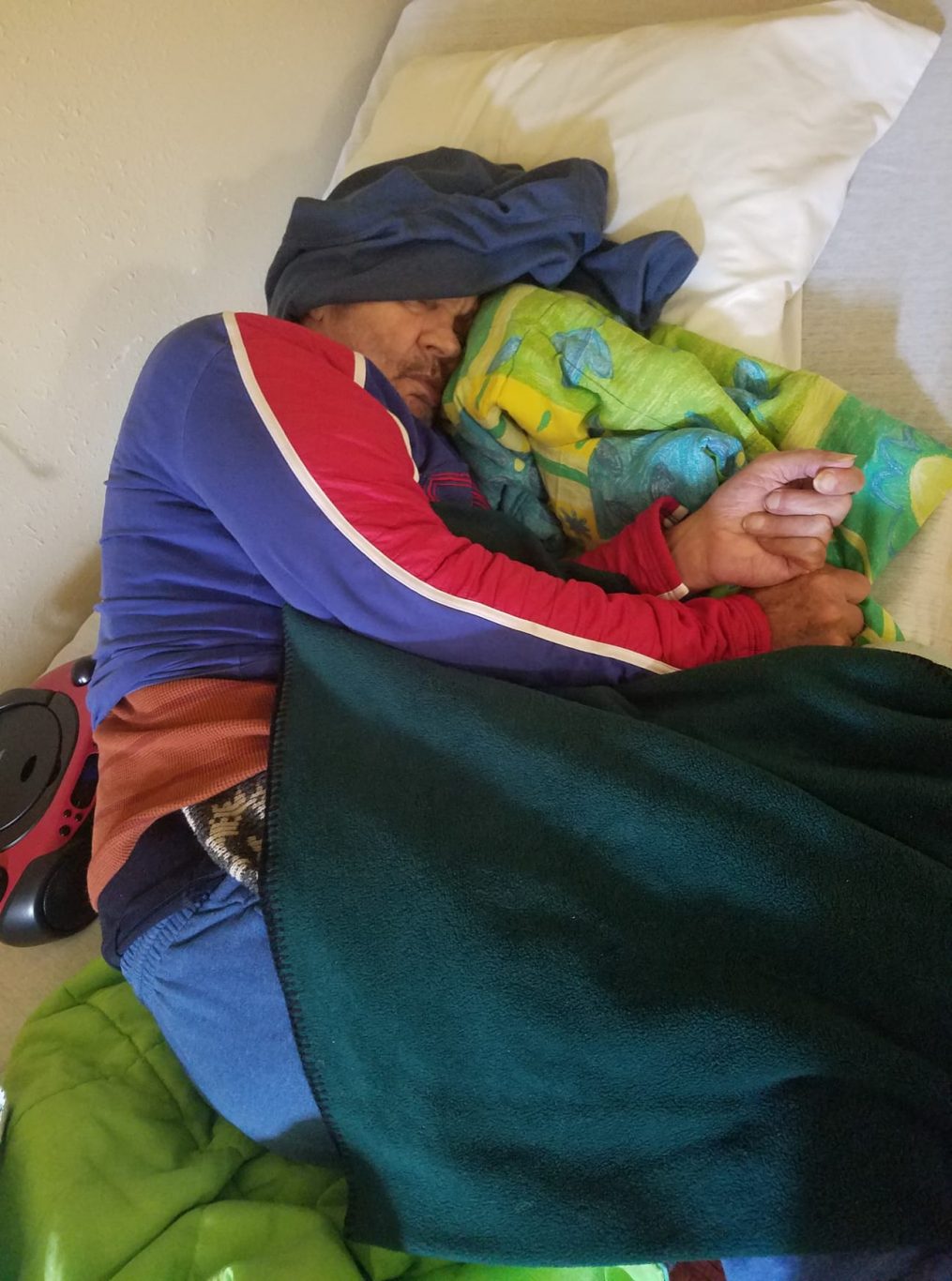
Puckett Pitts said that if her father had not gotten hurt, he’d still be on the streets. “I probably would’ve never found him,” Puckett Pitts said. “There are not enough mental health facilities or facilities for dementia.”
Knowing that she’ll never have to worry about her father being cold or hungry or dying alone is a “miracle,” said Puckett Pitts.
She said her experience with her father has taught her that a lot of people end up homeless because they don’t have a family who can see that they may be developing dementia.
Elizabeth Bowen, Ph.D., an assistant professor of social work at the University of Buffalo who researches homeless populations, said that loss of a support network is a huge risk factor for homelessness.
“Homelessness is associated with a lot of stress and instability. I would think this could make dementia symptoms worse, and also make it harder for people with dementia to connect with their support networks and get the right support systems in place,” Bowen said.
Kushel found that a third of the homeless population in her study had signs of cognitive impairment. Another 2015 study found that out of the 2,969 homeless participants they analyzed, 25 percent were determined to have cognitive impairment, based on IQ tests and neuropsychological assessments.
“We suspect that for many of these individuals, cognitive impairment might have increased their risk of becoming homeless. It might be one of the reasons that they became homeless. Their jobs became harder to do or they struggled more with financial management,” Kushel said.
A Lack of Resources for the Aging Population
The lack of resources that are offered to those who are living with dementia is something Diana Diggins, whose mother ended up homeless, can relate to.
Like Oglesby, Diggins learned that her mother, Sandy, was living in her car. She immediately called her mother’s social worker to see if she could help her.
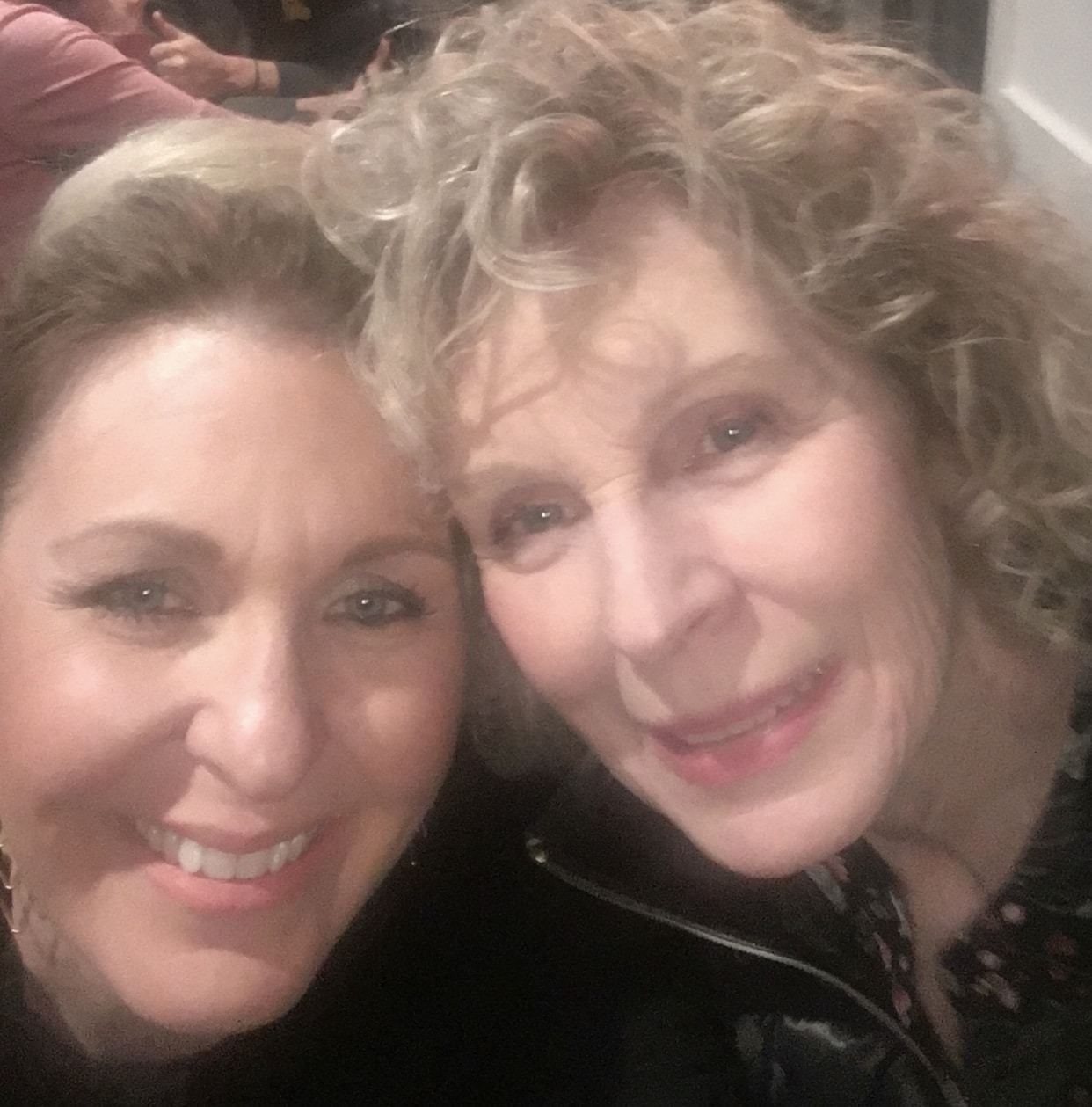
“The social worker said, ‘I can’t do anything for your mom. I’ve given her resources and she’s fine.’ I was like, ‘What? She’s living in her car. She’s not fine,’” Diggins said. “She said, ‘Well, on the scale of things that could be happening, she really is. Your mom’s a survivor.’”
Although Diggins’ mother now has dementia, Diggins said she had been estranged from her mother since she was 18 years old because her mother also has a personality disorder. Diggins lives in Maryland and her mother lived in California, but Diggins said they always remained in contact.
In 2006, her mother called Diggins to tell her the neurologist said she had dementia.
“She had cried wolf so many times. I was like, ‘It’s OK. You’re getting older and you’re getting a little more forgetful,’” Diggins said. Resistance to diagnosis is common in family members. “It’s just too scary. It’s a weird denial that happens,” Diggins said.
However, Diggins said the phone call remained in the back of her mind. In 2012, she began receiving strange phone calls from her mother, who was staying with her best friend of 40 years after being evicted from her apartment. Her mother told her that her friend was trying to kill her.
Because she continued having hallucinations, Sandy moved out of her friend’s apartment. The landlords at her mother’s new apartment became frustrated when Sandy continued calling them about stolen jewelry. “I told the manager, ‘Please, just be patient, she has dementia.’ But they were over it and she got evicted,” Diggins said.
While Diggins said the social worker tried to convince her mother to use the 90 days she had before eviction to find a new apartment, Sandy was confused. “In retrospect, I realize my mom could not process all of that information because she had dementia,” Diggins said.
After the eviction, Diggins said that her mother lived in her car for about six months.
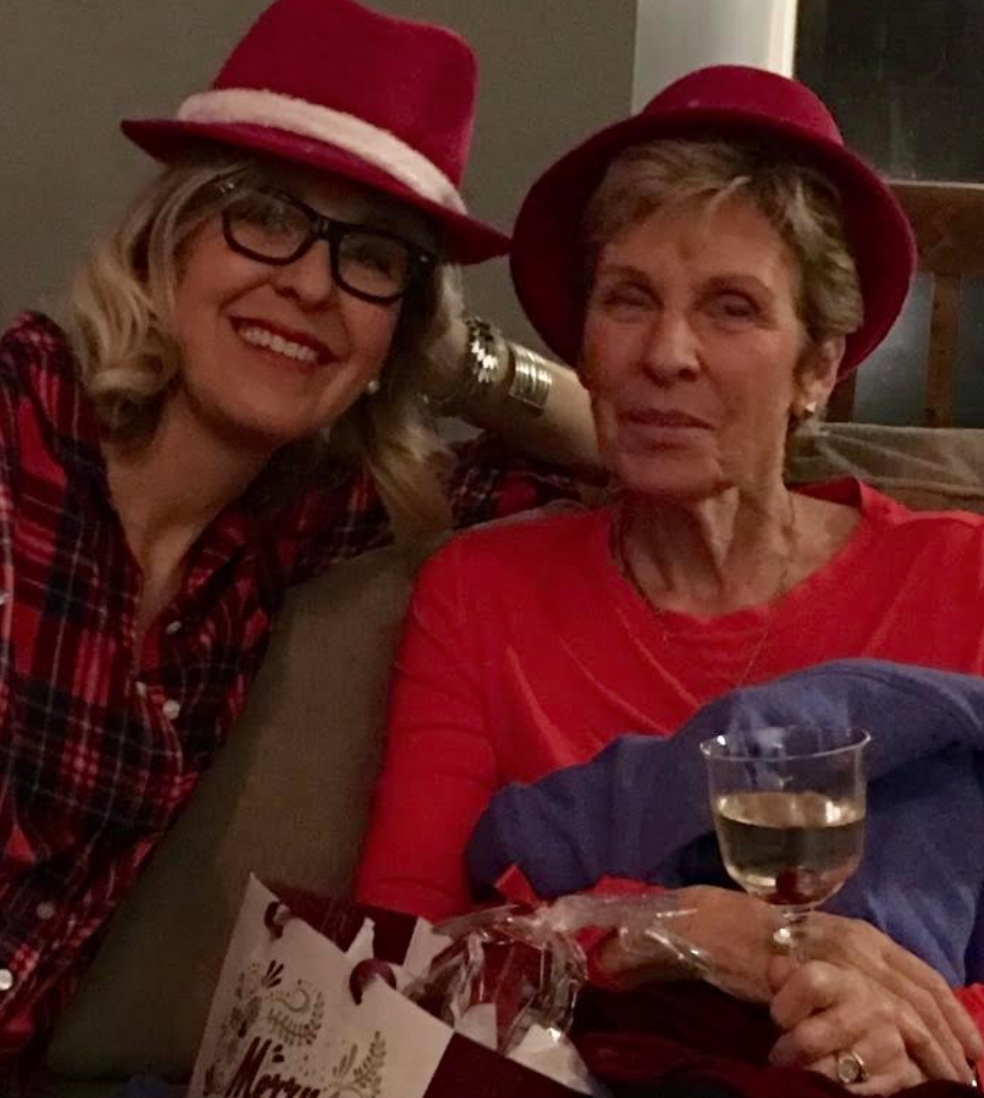
“I guess I thought, ‘She’s made so many bad choices in her life that I’m not going to be the one to pay for her bad choices.’ But I wasn’t being very empathetic about the fact she had dementia because I didn’t understand it,” Diggins said.
She said many of her loved ones, including her son, boyfriend and father, who lives in Oregon, told her she should not bring her mother to stay with her in Maryland. However, she had a dream that convinced her otherwise.
“I had this vivid dream, where she was very healthy. I thought she had died and that it was one of those dreams where the person comes back as their best self. I freaked out and called her,” Diggins said. “She was not dead, and I said, ‘OK, I’m coming to get you.’”
While her mother is no longer homeless, Diggins has found that the resources to help her mother are scarce.
In 2014, Diggins opened a hair salon, a business that requires her to be there for 10 hours each day, 7 days per week.
Diggins worries about her mother when she is at work all day.
“She’s home alone all day now. Nobody can be isolated like that,” Diggins said.
Diggins said she had to get rid of the private caregivers she hired to care for her mother because they took advantage of Sandy. Diggins learned her mother was paying for the caregivers’ meals, even though that was not part of their agreement.
After searching for assisted living facilities in Maryland, Diggins learned that the move-in fee to get into one of the cheaper assisted living facilities in her area is $4,000. In addition to the $4,000 entry fee, the monthly cost for a studio is $3,600 per month, and depending on the level of care her mother would need, she could owe up to an additional $1,200 per month.
According to the Alzheimer’s Association, the average cost of an assisted living facility in the U.S. is $3,750 per month or $45,000 per year for basic services.
When Diggins tried to argue the $4,000 entry fee to a staff member at the assisted living facility, she said the woman said she should consider herself lucky—many of the facilities charge upwards of $10,000 for entry.
Because her mother only receives $1,300 per month from social security and Diggins just opened her salon five years ago, she worries about how she can afford an assisted living facility. She said her mother worked as a secretary for most of her life, but did not receive health benefits.
“There is a tremendous burden on families, especially on women who worked in the ‘60s, ‘70s and ‘80s and were paid a fraction of what men were, without benefits. I am looking at potentially sacrificing my own retirement to support her, if she goes into assisted living,” Diggins said. “For women or men who have not been able to or chose not to plan for their future, they end up at this stage of their life with no money. There are literally no resources.”
The lifetime cost of care for someone who has dementia is $341,840 and 70 percent of this cost is paid for by families through out-of-pocket expenses, according to a report by the Alzheimer’s Association. That doesn’t include unpaid care. The report also found that 41 percent of caregivers make a household income that is less than $50,000 per year.
Between 2012 and 2050, the U.S. population who are 65 and older is expected to double from 43.1 million in 2012 to 83.7 million in 2050, according to a U.S. Census Bureau analysis. This increase means that the U.S. will need even more resources to support its growing elderly population.
Kushel said that research shows the second half of the baby boomers—those who were born between 1954 and 1965—have been at a higher risk for homelessness their entire lives because of static incomes and the housing crisis. She said that as this group ages into their 60s and 70s, there will be more elderly people who become homeless.
She thinks the U.S. needs to combat homelessness by either improving people’s incomes or the cost of housing. She also believes housing resources should be age-friendly for people with cognitive impairment.
“The hope is that we can extend the amount of time that people live in the community with dignity by adapting some of the best principles that wealthier people have access to for poverty populations,” Kushel said. “That may include trained caregivers, making the environment of the community accessible to people with memory impairments and making sure that we’re adapting our expectations and how we work with people to account for their cognitive impairment.”
Recently, Diggins traveled to California to see if she could retrieve any of the items her mother had packed in boxes and left in storage, and said the experience was eye-opening. She had not realized the extent to which her mother’s cognitive impairment affected her decision-making.
“I was just opening boxes of dementia—meaning how it was packed and what was packed. She mostly put phone books, towels, plastic bags and garbage in the boxes,” Diggins said. “I thought, ‘Oh my god. This is the physical manifestation of this brain disease.’”
After discovering that their parents became homeless Oglesby, Puckett Pitts and Diggins all agreed on one thing: If their loved ones did not have any family, they would likely still be on the street.
“If my husband and I had not been here, and I mean this with all sincerity, my mom would probably be dead right now,” Oglesby said. “She got lost in the shuffle, from the lack of health care and the lack of resources. She just got lost.”
